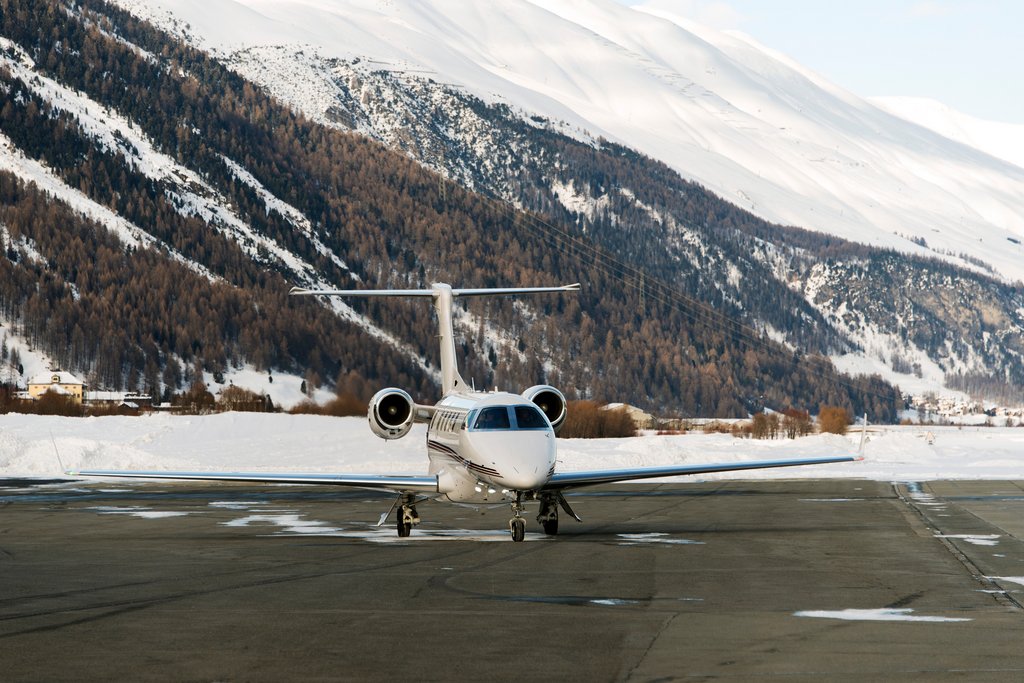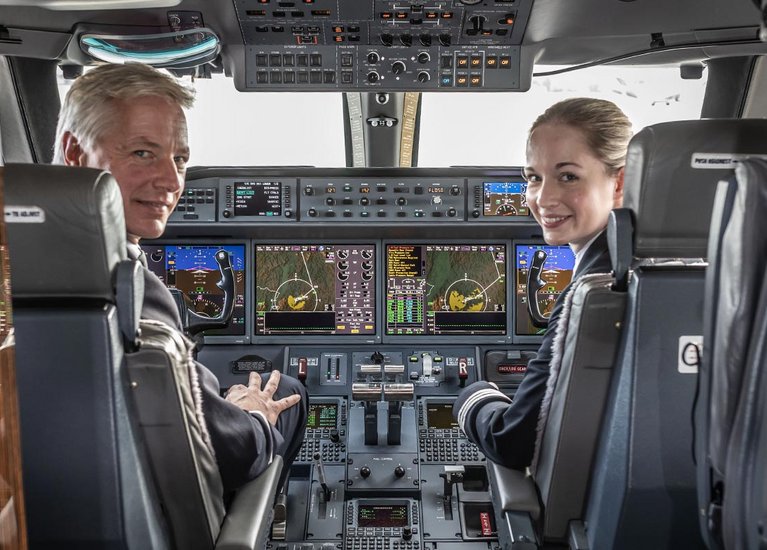The private aviation industry is at a turning point. For a long time, it has been criticized for its environmental impact, particularly its high CO2 emissions and contribution to climate change. But times are changing. With a growing awareness of the need to act more sustainably, the industry has taken significant steps to reduce its environmental footprint. These developments not only mark an important step towards a greener future, but also set new benchmarks for sustainability across the aviation industry. Join us on this exciting journey and discover how private aviation is spreading its wings towards sustainability.
Current business aviation goals for a sustainable future
With the updated Business Aviation Commitment on Climate Change, the private aviation industry reaffirms its climate protection ambitions. The revised targets focus on continuously improving fuel efficiency and achieving carbon neutral growth from 2020 and now aim for net zero carbon emissions by 2050. In order to achieve these challenging and ambitious goals, we will continue to focus on technological innovations, alternative fuels, more efficient operations and market-based solutions, which together will contribute to a more sustainable future for private aviation.
The current targets at a glance
- Improve fuel efficiency by 2% per year from 2020 to 2030
- Achieve climate-neutral growth from 2020 onwards
- Target by 2050: net CO2 emissions of zero
Technological milestones in private aviation
In the world of private aviation, technological innovations mark the path to sustainability. Advanced aircraft and engine technologies that leverage the use of lighter materials and designs to save fuel are driving efficiency improvements. This includes developments such as new avionics systems that enable more precise and direct flight paths, which in turn reduces fuel consumption and emissions. In addition, new aircraft models with innovative engines and aerodynamic wings are proving that lower specific fuel consumption can be achieved while reducing emissions at the same time.
Sustainability in the air: the rise of alternative aviation fuels
The private aviation industry has achieved a major breakthrough in the use of sustainable alternative aviation fuels. These innovative fuels, which can be derived from a variety of raw materials, are helping to significantly reduce net CO2 emissions from aviation. In this way, the industry is demonstrating that a faster and comprehensive reduction in emissions is possible. For private aviation companies, these fuels offer a viable option to make the transition to greener operations while redefining industry standards for sustainability.
The private aviation industry has set ambitious goals to minimize its environmental footprint.
FAQ (Frequently Asked Questions)
- How are efforts being made to reduce CO2 emissions in aviation? Efforts are being made to develop alternative propulsion systems and low-emission fuel through research projects and to optimize the efficiency of existing flight operations.
- What measures are being taken to achieve sustainability in all areas of aviation? Lighter materials are being used in aircraft construction, aerodynamics are being improved and engine efficiency is being increased. Airports are optimizing taxiing times and start-up clearances, while aircraft are saving weight by using lighter equipment.
- What is Sustainable Aviation Fuel (SAF) and why is it important? SAF is an alternative fuel that can reduce CO2 emissions over the entire life cycle compared to conventional kerosene. It is one of the key solutions for the decarbonization of aviation.
- What is the business aviation commitment to climate change? The Business Aviation Commitment on Climate Change is a voluntary commitment by the business aviation industry to achieve net-zero CO2 emissions by 2050. It also includes the goal of continuously improving fuel efficiency.




